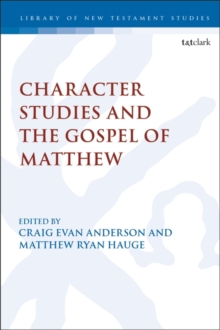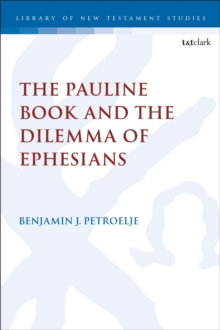
A Poetic Discontent : Austin Farrer and the Gospel of Mark Paperback / softback
by Rev Robert Titley
Part of the The Library of New Testament Studies series
Paperback / softback
Description
Austin Farrer has often been described as the one genius that the Church of England produced in the twentieth century.
He wrote and spoke widely as a philosophical theologian, a biblical scholar and as a preacher.
Farrer's philosophical work is read widely and some of his sermons are still in print, forty years after his death.
His biblical writings, however, have been largely ignored, even at the time they were written.
Robert Titley asks whether, in respect of his work on the Gospel of Mark, this neglect is justified.
Titley's approach is from three angles, looking at Farrer on Mark as literature, as history, and as scripture.
Farrer's reflections are far from simple, and they show that these apparently simple categories, 'Literature', 'History' and 'Scripture', are themselves in need of refinement if they are not to mislead.
Titley examines two major texts of Farrer's: his 1948 Bampton Lectures, published as The Glass of Vision, and his A Study in St Mark (1951).
Other works, notably his second look at Gospel interpretation, St Matthew and St Mark (1954), and several lectures, articles and sermons, are also significant.
Farrer's essential observation about Mark (and other biblical writings) is that they are the products of creative, 'poetic' minds.
Titley argues that, while Farrer makes an error in treating Mark as poetry rather than prose narrative, he nevertheless shows remarkable prescience when his work is viewed in the light of the subsequent emergence of a 'literary paradigm' in Gospel interpretation.
In particular, Titley demonstrates that a conversation with Farrer's work has something to contribute to the continuing debate about whether - and, if so, how - to take account of authorial intention in reading a text, and about what significance - if any - can be given to statements about what a text 'means.'
Information
-
Only a few left - usually despatched within 24 hours
- Format:Paperback / softback
- Pages:240 pages
- Publisher:Bloomsbury Publishing PLC
- Publication Date:30/05/2019
- Category:
- ISBN:9780567688934
Other Formats
- Hardback from £150.00
£32.99
£23.09
Information
-
Only a few left - usually despatched within 24 hours
- Format:Paperback / softback
- Pages:240 pages
- Publisher:Bloomsbury Publishing PLC
- Publication Date:30/05/2019
- Category:
- ISBN:9780567688934










